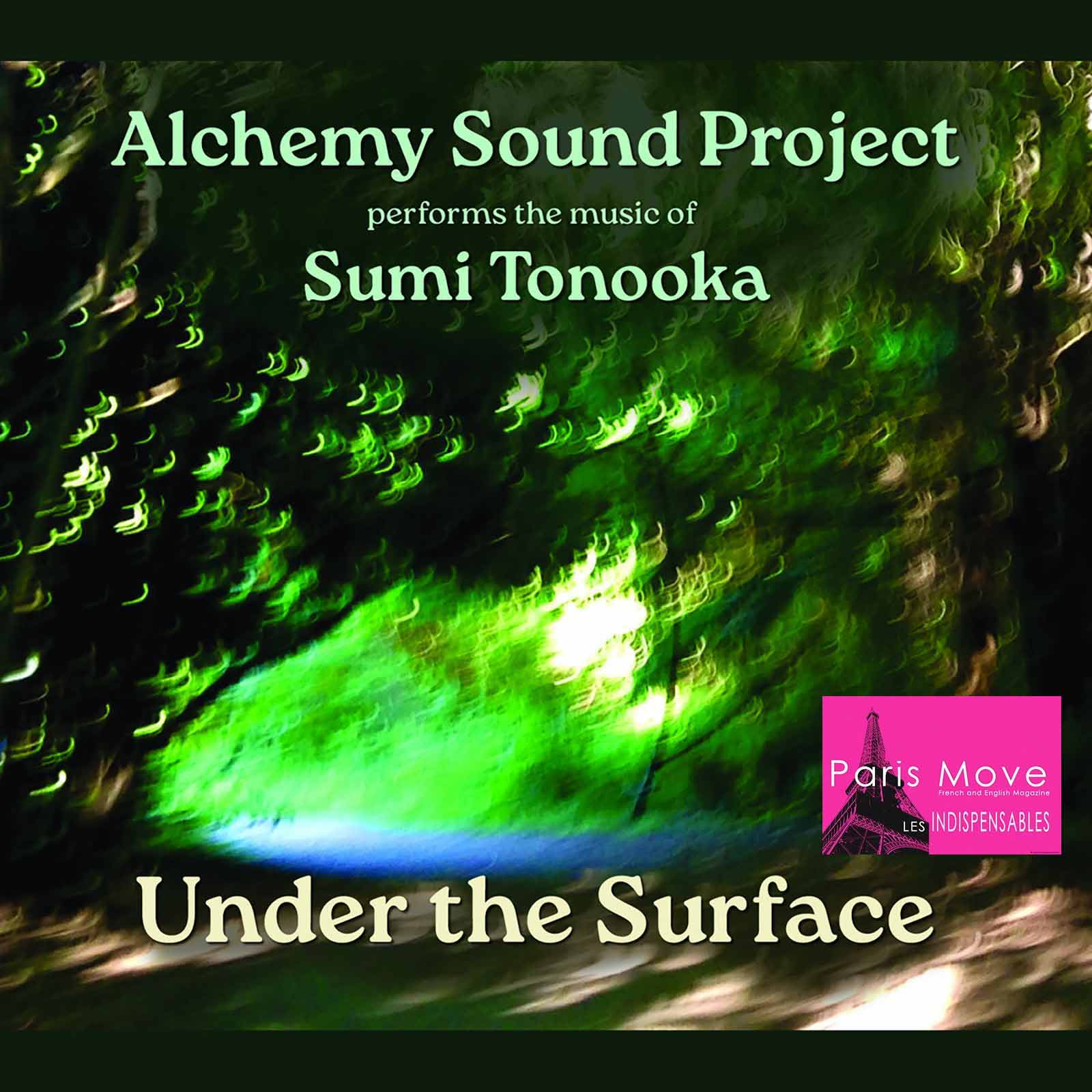| Jazz |

Under the Surface: Sumi Tonooka’s Jazz Tapestry and the Underground Wisdom of Trees.
As June fades into the full heat of summer, one album invites us not to look up at the sun but rather to descend, into the soil, into silence, into the tangled, unseen complexity of roots. For composer and pianist Sumi Tonooka, the forest floor becomes both muse and metaphor in a seven-part suite that blurs genre boundaries and evokes the quiet cooperation of trees beneath our feet. This is music of the underground, and not in the bohemian sense, but the ecological.
Tonooka’s latest work is more than a record. It’s an immersive, intentional gesture, one that asks us to feel rather than simply hear. Inspired by the wood wide web, a vast subterranean fungal network that connects tree roots across species lines, enabling them to share nutrients and signals—Tonooka’s compositions echo the silent intelligence of this system. In nature, the strong feed the weak. Trees, ancient sentinels, reach out with unseen filaments to heal, nourish, and sustain one another. What science calls “mycorrhizal networks,” Tonooka reframes as a symbol for human cooperation: a radical revision of Darwinian survival, where empathy, not dominance, ensures survival.
And so, this album is not merely ecological, it’s philosophical. It proposes an ethic of interdependence and translates it through sound. The listener, if attentive, becomes a walker in the woods, eavesdropping on subterranean exchanges, trying to decipher signals that are at once deeply natural and intricately constructed. The jazz here isn’t background, it’s the forest floor come alive: urban, angular, restless, yet pulsing with organic intelligence.
To truly appreciate the complexity of this project, one must understand the woman behind it. Sumi Tonooka’s career has never been easily summarized. Since emerging from the fertile jazz scene of 1970s Philadelphia, she has crisscrossed the American musical landscape, geographically, stylistically, emotionally. Stops in Boston, Detroit, New York, and Seattle have nourished her, each city adding texture to a body of work that resists categorization. While now rooted again in Philadelphia, Tonooka’s artistry carries traces of every place she’s called home.
Her résumé is formidable: 20-plus film scores, including Family Gathering, Lise Yasui’s Oscar-nominated meditation on Japanese-American identity, and Mary Lou Williams: The Lady Who Swings the Band, a documentary homage to a pioneering jazz figure. Her compositional range spans chamber works, symphonic pieces, and expansive jazz projects, often threaded together with an unshakable sense of story.
This album gathers those threads. It doesn’t just reflect Tonooka’s experience, it is that experience, layered and dense, with classical structures woven into jazz frameworks, avant-garde textures rubbing shoulders with lyrical interludes. There’s no rigid allegiance to form. Instead, Tonooka presents music as mirrorwork, fragments reflected, refracted, and reassembled. Tones blur and overlap like shifting canopies, and motifs surface, vanish, and return like memories or seasons.
Her journey began young: a teenage graduate from high school, she set off for Boston at 15, studying under piano legends Margaret Chaloff, mentor to Jarrett, Corea, Hancock, and Charlie Banacos, a disciple of Lennie Tristano whose radical pedagogy still echoes in contemporary jazz education. From Boston to Detroit, she honed her voice alongside the late, great Marcus Belgrave, a luminary of the Motown jazz scene and midwife to generations of artists.
This new work doesn’t make concessions. It asks much of its listener, particularly those rooted in traditional jazz idioms, but it rewards richly. For those willing to journey into deeper soil, Tonooka’s suite is one of 2025’s most moving musical offerings: a meditation on interconnection, resilience, and grace.
In a world that too often mistakes noise for strength, Tonooka shows us another way, where wisdom is quiet, generosity is powerful, and the strongest among us are those who choose to share their light beneath the surface.
Thierry De Clemensat
Member at Jazz Journalists Association
USA correspondent for Paris-Move and ABS magazine
Editor in chief – Bayou Blue Radio, Bayou Blue News
PARIS-MOVE, June 13th 2025
Follow PARIS-MOVE on X
::::::::::::::::::::::::
Alchemy Sound Project’s Website
Musicians :
Sumi Tonooka piano
Special Guests:
Johnathan Blake – drums
Gregg August – bass
Erica Lindsay – tenor sax
Salim Washington – multi reeds
Samantha Boshnack – trumpet
Michael Ventoso – trombone
Tracklist :
Point of Departure
Savour
Interval Haiku
Tear Bright
Mother Tongue
For Stanley
Under the Surface

